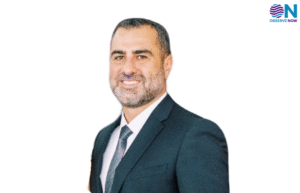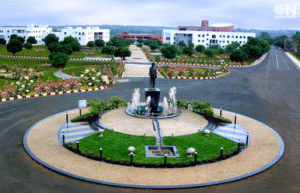New Delhi: Indian private higher education institutions face several challenges, including inadequate infrastructure, variable quality of faculty, and a reliance on rote learning. Reforms are imperative to enhance the education system’s quality. Initiatives such as faculty development programs, modernizing curriculum to align with industry needs, and fostering research-oriented environments can address these issues.
Achieving world-class universities in India requires sustained investment, international collaborations, and emphasis on innovation. The National Education Policy 2020 is a significant step, introducing structural changes like flexible curricular frameworks and multidisciplinary education, fostering a conducive environment for the evolution of globally competitive institutions. In this regard, Rikita Paul, ObserveNow interacted with Sanjay Padode, President, Vijaybhoomi University.
Here are a few excerpts from the interview:
According to you, what are the major challenges faced by Indian private higher education players? What reforms are needed in the education system to improve the quality of education in India?
Indian Education system is being challenged by the rapid growth of the economy and the rising aspirations of the Indian Population. The demographics of India is probably one of the most diversified in the world. The education system of India needs to deliver on
· Literacy for the marginalized population
· Skill-based training to meet the requirements of the growing services and manufacturing sectors
· Capacity building through talent development for fuelling the growth rate that India is enjoying
· Creating innovators, entrepreneurs, and thought leaders to sustain the growth rate of the nation.
To deliver on all of these formidable but achievable challenges, the country will need to:
- Enhance the Gross Enrolment Ratio to 50% from 30%
- Untangle the complex web of regulations managed by multiple regulating agencies.
- Develop a pool of good quality faculty that are focused on teaching and learning.
- Reduce the trust deficit between the industry and academia.
- Eradicate the lack of transparency in the working of institutions.
- Curb the rampant political interference in the management of academic affairs.
The reforms required in education are many and are quite well addressed by the National Education Policy 2020. I am listing the few that I consider as most important:
1. Consolidation of regulating agencies into one regulatory framework which has a common mission.
2. Improvising the primary and secondary school education system which is being operated by the government.
3. Since education is on the concurrent list, it is important to align the priories of the states with the national agenda.
4. Enhance the rigor in academics and to do this the regulator has to change their approach from being inspectors to being facilitators.
5. Allow the students to choose, migrate, transfer, and exit multiple times during their education journey across states, institutions, universities, and countries.
6. Create a financial institution dedicated to providing education loans to students, and infrastructure development loans to institutions both private and public. This institution should be partly funded by the government and more funded by the CSR funds of the corporations and those who want to give back. The same institution must also provide research funding to both private and public-owned institutions. The research funding should be provided to deserving faculty agnostic of the institution.
7. The regulators need to reduce the number of rules and enhance the effectiveness of regulation. Interconnect data filed with income tax and the reported data provided to the education regulators. For academic data maintain a single repository of information which could then be accessed by the Centre, State, Accreditation and Professional bodies.
How can India have world class universities? With a goal set to build world-class Indian institutes in higher education, the National Education Policy 2020 is making structural changes. Crucial amongst them is the ranking framework NIRF and beefing up the role of the NAAC and NBA. What movement have you noticed on this front?
In my view the regulator should never ever promote ranking. Ranking defeats the purpose of education. The regulator should focus more on the quality assurance. Thus accreditation must be made more rigorous and the NIRF must be disbanded. Allow ranking to be done by professional agencies and provide incentives to institutions who can break through into the global rankings. The regulators must also equate the Indian accreditation systems with the internationally acclaimed and recognized accreditation systems established by various professional agencies of repute. NBA and NAAC need to evolve and should be allowed to compete with the international accreditation frameworks. The choice of an accreditation system should rest with the institution. However accreditation should be made mandatory and a correlation must be established between international accreditation systems, Indian accreditation systems, and global rankings. Such correlations could help in enhancing the efficacy of the Indian accreditation systems. Also, the fight for survival for the Indian accreditation agencies would ensure the relevance of their models and would keep the gaming of the system under check.
Why is maintaining operational and financial transparency important for private universities?
A lot of taxpayer’s money is routed into the public universities and school education system. This money needs to be accounted for properly to avoid leakage and to ensure that the same is deployed efficiently. Thus it is important that all schools and universities both public and private report their numbers transparently. It is mandated that education be run not for profit and on the contrary more than 70% of India’s higher education is delivered by the private sector. It is no no-brainer that this would not be happening if the “not for profit” mandate was implemented effectively. The regulator needs to build checks and balances just like the RBI to monitor and regulate the use of funds in this sector. The regulator must insist periodic reporting of data by such institutions and make it transparently accessible to all the stakeholder including parents and students. The more transparency is created, the more trust will develop.
What are your future plans for Vijaybhoomi university? What unique practices are followed at the university to shape the young minds of India?
The University has multiple schools based on disciplines which offer variety of learning pathways to professional degrees. For instance our school of music offers a unique learning pathway leading to a Bachelor’s in Technology in Sound Engineering. The curriculum of the University has been designed to promote learning by doing and learning through immersions. Some of our unique and compulsory curricular interventions are mentioned below
· Personality Enhancement Program (PEP) for developing the learner physically, mentally and spiritually.
· Research Incubation (RI) has been designed to develop research skills, enhance analytical thinking and problem solving ability.
· Innovation Incubation (II) develops problem solving, decision making and risk taking abilities of the student
· Social Immersion Program (SIP) sensitizes a student to social challenges through immersion and helps develop problem solving ability, empathy and compassion.
· Industry Internship Program (IIP) immerses a student into the working of an organisation and provides an opportunity to apply the learning to practice in real life situation.
In 2022, the ministry of education issued guidelines to help central universities initiate the process of endowment fund, which was also in line with NEP which encourages universities to look for external sources for funding . Why are endowment funds important for education Institutes?
Donation and Endowments are the manifestation of trust of the alumni, community and the society in the institutions commitment to its mission. The quantum of endowments and donations received by a University is true reflection of the universities contribution to the society.
Having stated the above, endowment funds and donations direct impact on a University are mentioned below
1. Development of Infrastructure for research, teaching and learning
2. Hiring of top-quality faculty who are dedicated to research and knowledge creation and are seeking funds to continue their efforts
3. Setting up of incubation centers for addressing real-life problems and for those that are anticipated in the near future.
4. Sustainability and longevity of the institution
5. Expanding the operations through off shore satellite campuses
6. Endowments can provide the necessary fuel for enhancing the number of Ph.D. scholars
7. They can enhance the ability of the University to provide financial assistance to deserving students and thereby make the institution more inclusive
8. Large Endowments can also help Universities lower the fee and thus provide a level playing field for students from different strata of society.



























